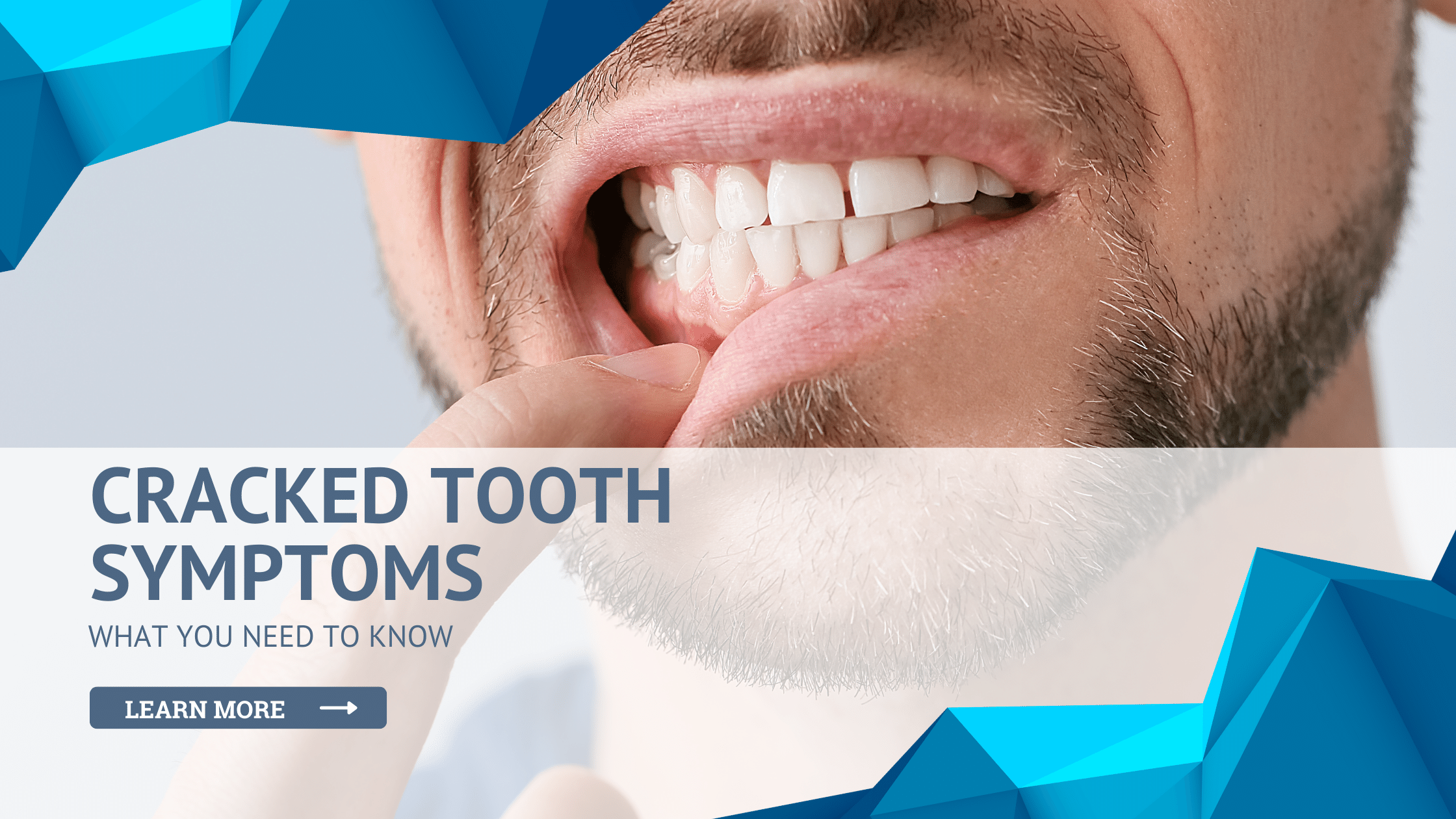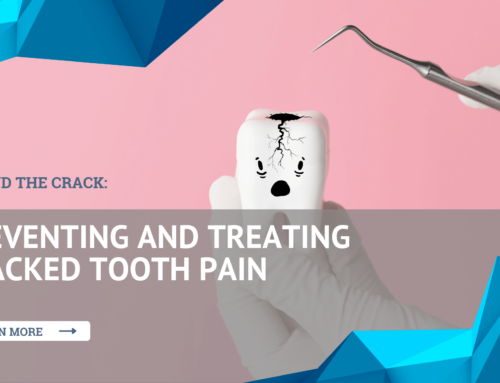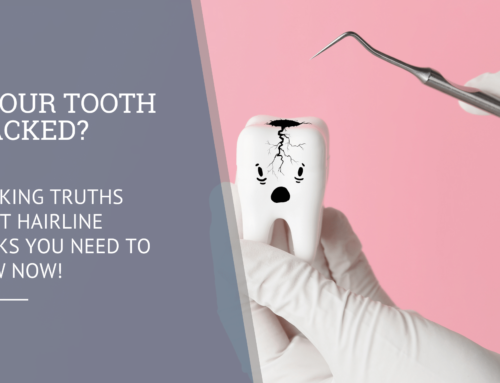Are you experiencing tooth pain that just won’t go away? It could be a cracked tooth. Cracked teeth are a common dental issue that can cause discomfort and affect your oral health. In this article, we will explore the symptoms of a cracked tooth, how it can split in half vertically, and why you should seek help from Eastern Idaho Endodontics.
Understanding Cracked Tooth Symptoms
Cracked tooth symptoms can vary from person to person, but they often share common characteristics. If you’re experiencing any of the following, it might be time to consider the possibility of a cracked tooth:
- Persistent Toothache: Do you have a toothache that just won’t go away, no matter what you do? This could be a sign of a cracked tooth. The pain may come and go, making it difficult to pinpoint the issue.
- Sensitivity to Hot and Cold: If you wince in pain when you sip hot coffee or indulge in a scoop of ice cream, your tooth might be cracked. Cracks can expose the sensitive inner layers of your tooth, causing temperature sensitivity.
- Pain While Chewing: Cracked teeth can make chewing painful, especially when you apply pressure to the affected tooth. If you find it uncomfortable to bite down on certain foods, a cracked tooth could be the culprit.
- Swollen Gums: In some cases, a cracked tooth can lead to gum swelling around the affected area. If you notice any unusual changes in your gum health, it’s essential to get it checked out.
What Causes a Tooth to Crack?
Understanding the causes of cracked teeth can help you avoid potential risks. Some common causes include:
- Chewing Hard Objects: Crunching on ice, biting into hard candies, or using your teeth to open packages can lead to cracks.
- Grinding Teeth: If you grind your teeth at night (a condition known as bruxism), it can weaken your tooth enamel over time, making your teeth more susceptible to cracks.
- Accidents and Trauma: A sudden impact or accident can cause a tooth to crack. Even minor accidents can result in significant damage.
The Vertical Split: A Serious Concern
A vertical split in a tooth is a severe condition that requires immediate attention. Unlike horizontal cracks, which might not always lead to immediate discomfort, a vertical split can be extremely painful. It can run from the biting surface of the tooth down towards the root, causing a complete separation.
Imagine your tooth as a sturdy pillar supporting a building. A vertical split is like a crack running straight down that pillar, weakening its structural integrity. If left untreated, this can lead to tooth loss.
How Eastern Idaho Endodontics Can Help
When you suspect a cracked tooth, seeking professional help is crucial. Eastern Idaho Endodontics specializes in diagnosing and treating dental issues, including cracked teeth. Our skilled team of endodontists can offer the following assistance:
- Precise Diagnosis: We use advanced imaging technology to identify the location and severity of the crack accurately.
- Pain Management: We understand that cracked teeth can be incredibly painful. We offer effective pain management solutions to ensure your comfort during treatment.
- Specialized Treatment: Depending on the extent of the crack, we may recommend treatments like dental bonding, root canal therapy, or, in severe cases, extraction and replacement with an implant.
Diagnosing a Cracked Tooth
To confirm if you have a cracked tooth, your dentist or endodontist will perform a thorough examination. This may include:
- Visual Inspection: Your dentist will visually inspect your teeth, looking for any visible cracks or signs of damage.
- X-rays: X-rays are a valuable tool for detecting cracks that may not be visible to the naked eye.
- Bite Test: You may be asked to bite down on various objects to determine which tooth is causing the pain.
Treatment Options for Cracked Teeth
The treatment for a cracked tooth depends on the severity of the crack. Here are some common treatment options:
- Dental Bonding: For minor cracks, dental bonding can be a quick and effective solution. A tooth-colored resin is applied to the cracked area, restoring the tooth’s appearance and function.
- Root Canal Therapy: If the crack extends into the tooth’s pulp (the innermost part), a root canal may be necessary to remove infected tissue and save the tooth.
- Crown Placement: A dental crown can be placed over the cracked tooth to protect it from further damage and restore its strength.
- Tooth Extraction: In severe cases where the tooth cannot be saved, extraction may be the only option. Your dentist will discuss replacement options, such as dental implants or bridges.
Preventing Future Cracks
Once you’ve experienced a cracked tooth, you’ll want to take steps to prevent it from happening again. Here are some tips:
- Avoid Chewing on Hard Objects: Steer clear of habits like chewing on ice, pens, or hard candies that can lead to tooth cracks.
- Use a Mouthguard: If you grind your teeth at night, wearing a custom-fitted mouthguard can protect your teeth from further damage.
- Regular Dental Check-ups: Make sure to visit your dentist for regular check-ups and cleanings. Early detection of dental issues can prevent them from worsening.
Living with a Cracked Tooth: Tips and Advice
Living with a cracked tooth can be challenging, but there are steps you can take to manage your discomfort:
- Maintain Good Oral Hygiene: Brush and floss regularly to prevent infection and further damage to the cracked tooth.
- Monitor Your Diet: Be mindful of what you eat to avoid putting unnecessary pressure on the cracked tooth. Stick to soft foods when possible.
- Stay Hydrated: Drinking water can help flush out bacteria and reduce the risk of infection around the cracked tooth.
When to Seek Immediate Dental Care
While some cracked teeth may not cause immediate pain, certain situations require urgent dental care. If you experience any of the following, don’t hesitate to seek help:
- Severe Pain: If you’re in severe pain, especially when biting down, it could indicate a more significant problem.
- Swelling: Swelling around the cracked tooth or in your face is a sign of infection and requires immediate attention.
- Bleeding: If your cracked tooth is bleeding, rinse your mouth gently with warm water and seek dental care promptly.
The Importance of Regular Dental Check-ups
Regular dental check-ups are essential for maintaining your oral health. Your dentist can detect early signs of cracks or other dental issues before they become severe. Don’t underestimate the power of preventive care in keeping your smile healthy and pain-free.
Conclusion
Understanding the symptoms and causes of a cracked tooth is essential for your oral health. If you suspect you have a cracked tooth, don’t ignore it. Seek professional help from Eastern Idaho Endodontics to ensure accurate diagnosis and appropriate treatment.
Now that you have a comprehensive understanding of cracked tooth symptoms and their significance, take proactive steps to protect your dental health. Remember, early intervention can make all the difference in preserving your smile.





Leave A Comment